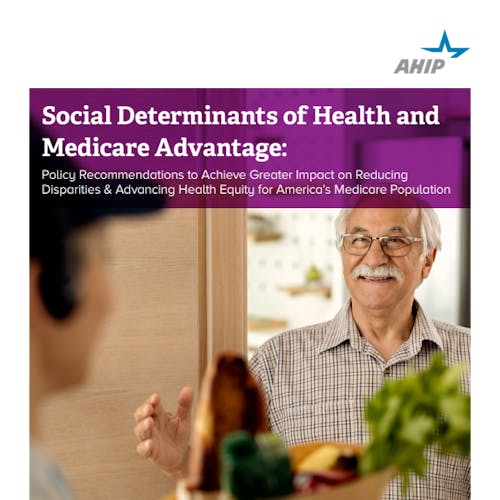Medicare beneficiaries enrolled in Medicare Parts A and B may choose to receive their Medicare benefits through a Medicare Advantage (MA) plan. MA plans must cover the benefits that fee-for-service Medicare (FFS) covers and may offer additional benefits beyond traditional Medicare coverage.
Medicare Advantage serves more than 26 million seniors and individuals with disabilities, many of whom face more socioeconomic risk factors and are more financially vulnerable compared to the traditional FFS Medicare population. Social risk factors or “social determinants of health” reflect the socioeconomic conditions in which we live, learn, work, play, and age and can include inadequate access to nutritious food, lack of affordable housing, lack of convenient and efficient transportation options, limited opportunities for quality education and meaningful employment, limited broadband access, and more. Socioeconomic barriers can impact a person’s ability to live a healthy life, access quality health care, and put them at greater risk of developing chronic conditions-leading to poorer health outcomes, more hospital admissions, and higher costs. For example, an individual may have diabetes-related hospital admissions due to food insecurity, develop asthma due to poor housing conditions, frequently visit an emergency department because of homelessness, or develop mental health conditions due to social isolation and loneliness.

